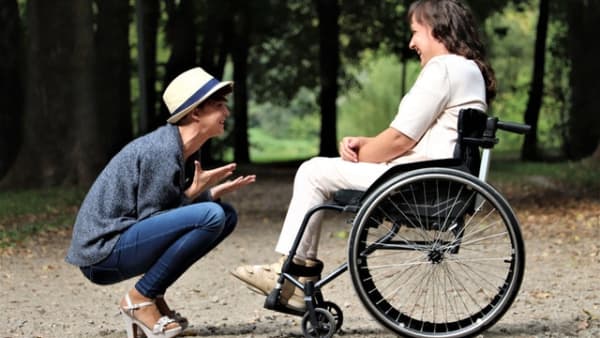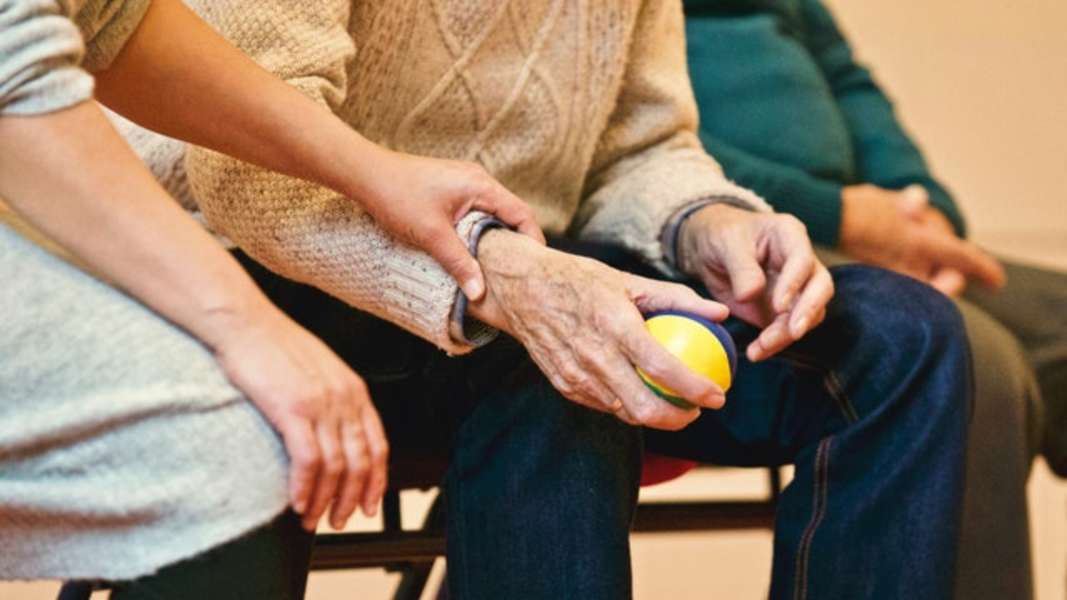
How To Hire A Caregiver
April 11, 2022

A caregiver is someone who looks after the young, vulnerable, sick, elderly or disabled. As well as providing vital practical and emotional support, they may also perform some medical tasks. Caregivers are compassionate, empathetic and patient people, whose services are greatly relied upon in society.
Caregivers are put in a position of great trust, and it's essential that when hiring a caregiver you put together a rigorous testing and interview process, to ensure the person you hire is mentally and physically able to meet the demands of the role.
This article will support you to hire a caregiver by recommending a series of different aptitude and soft skills tests that can help you determine which applicants have the relevant skills, characteristics and knowledge for the role.
What should a caregiver be able to do?
A caregiver's day-to-day work can vary greatly, depending on the needs of the people they look after. But most caregivers will need to be able to confidently perform tasks such as:
- Mentally stimulating patients by communicating, reading to, and entertaining them in the ways that best suit their needs.
- Performing light medical tasks such as changing dressings, or administering prescribed medication.
- Updating and maintaining patient care records.
- Ensuring good personal hygiene standards by helping charges to wash, changing bed linen etc.
- Helping with errands, and chores around the house.
- Feeding, and assisting patients with general nutrition.
- Acting as a point of communication between various people such as the patient, family members and medical teams.
Caregiving work is demanding but often very rewarding. As well as all of the tasks listed above, there will be plenty of other things to do to support a patient or charge, and a good caregiver must be willing to be adaptable and flexible to best support the person or people they're caring for.
Skills to look for in a caregiver
A good caregiver needs to demonstrate a wide variety of skills to prove they have what it takes to meet the mental and physical demands of the role.
When hiring a caregiver, we recommend looking for the following skills through testing and interview questions, in order to get a good sense of whether each applicant meets expectations.
- Active listening skills: caregivers need to be able to listen and really hear the needs of the people they care for, as well as the (sometimes conflicting) desires of family members and medical teams.
- Social perceptiveness: being able to read complicated situations and make good judgement calls is an essential part of the caregiving role.
- Flexibility and coordination: not many jobs require as much flexibility and adaptability as a caregiver. Its unpredictable nature means it's never boring, but caregivers will need to show they can think on their feet and move with the changing requirements of the day.
Useful abilities for a caregiver
Some of the things you'll be looking for in a caregiver are harder to test for, but can be identified through clever questions and the right mix of soft skills and aptitude tests.
When you're looking for a caregiver you can trust, it's essential to see evidence of the following innate abilities:
- Comprehension: vital in any role where communication is key.
- Expression and communication: caregivers often have to act on behalf of the person they're caring for, so being able to articulately express themselves and communicate effectively with numerous different people, from delivery drivers to medical practitioners, is a really essential ability to look for.
- Error checking: this isn't necessarily about solving problems; it's about being able to check for problems and errors. This skill can make a patient's day infinitely better, and it could even be life-saving.
- Deductive reasoning skills: this is the ability to apply general rules to specific problems, and it's a really useful skill to have as a caregiver who will need to solve different problems every day.
- Near vision: often having to act as your patient's eyes and ears means you need to be able to demonstrate good vision skills to help with practical tasks that your patient may be unable to perform.
Which soft skills tests could I use to hire a caregiver?
Soft skills are really important in roles like caregiving, where a person's manner and behaviours are often more important than technical ability.
When hiring a caregiver, we recommend assessing the following soft skills to get a sense of how well each applicant is likely to perform in the role:
- Interpersonal skills: interpersonal skills tests look at how well an individual is able to communicate and work with others. This is one of the most essential soft skills to test for when looking for a caregiver.
- Accountability: accountability tests look for discipline, ownership and the ability to learn from mistakes in order to get better at your job. This is really important in caregiving as mistakes can be critical, and caregivers need to show evidence that they can take ownership and learnings when things do go wrong.
- Time management: for caregivers, time management skills are essential. Whether it's showing up on time to administer important medication or keeping to vital appointments, good time management is critical.
Which technical or aptitude tests could I use to hire a caregiver?
The following is a selection of aptitude tests you could use in the hiring process. They'll help you to determine whether an applicant has the relevant technical skills needed to deliver a strong performance as a carer:
Verbal reasoning: verbal reasoning tests look at a number of things including comprehension skills, the ability to differentiate between what's fact and what's merely been inferred, and how well someone can read and process large volumes of information. All essential in the role of caregiving.
Deductive or inductive reasoning: deductive reasoning is about moving from a general idea to a specific conclusion, while inductive reasoning is the opposite. Overall, both of these tests look at how well candidates are able to draw on limited information to problem solve and make decisions.
Microsoft Word and Excel : there will always be a number of computer-based tasks to perform such as filling in patient details. Caregivers should be able to use basic computer programmes, such as the Microsoft Office suite, to fulfil these tasks.
Our recommended test battery for a caregiver
Hiring the right caregiver for the job is really important, especially as the role is a position of trust. As a result, determining the right mix of skills to test for is really important. Although the nature of one caring job will differ from another, we recommend a mix of tests that focus on both soft skills and aptitude.
- Verbal Reasoning test: the verbal reasoning assessment can help you feel confident that your chosen applicant has demonstrated strong communication and comprehension skills.
- Interpersonal skills: this test will help you see which applicants understand the critical nature of the role of a caregiver.
- Accountability: rest assured that your top applicant will be someone you can rely on and who will act with integrity even in stressful conditions.
- Microsoft Office test: if the caregiving role you're hiring for involves correspondence with various people, we recommend using software skills tests such as Outlook, Excel and Word.
For more information about how to hire a caregiver, head to our caregiver test page.
Boost your hiring power.
Start using Neuroworx today.
Talk is cheap. We offer a 7-day free trial so you can see our platform for yourselves.
Try for free




